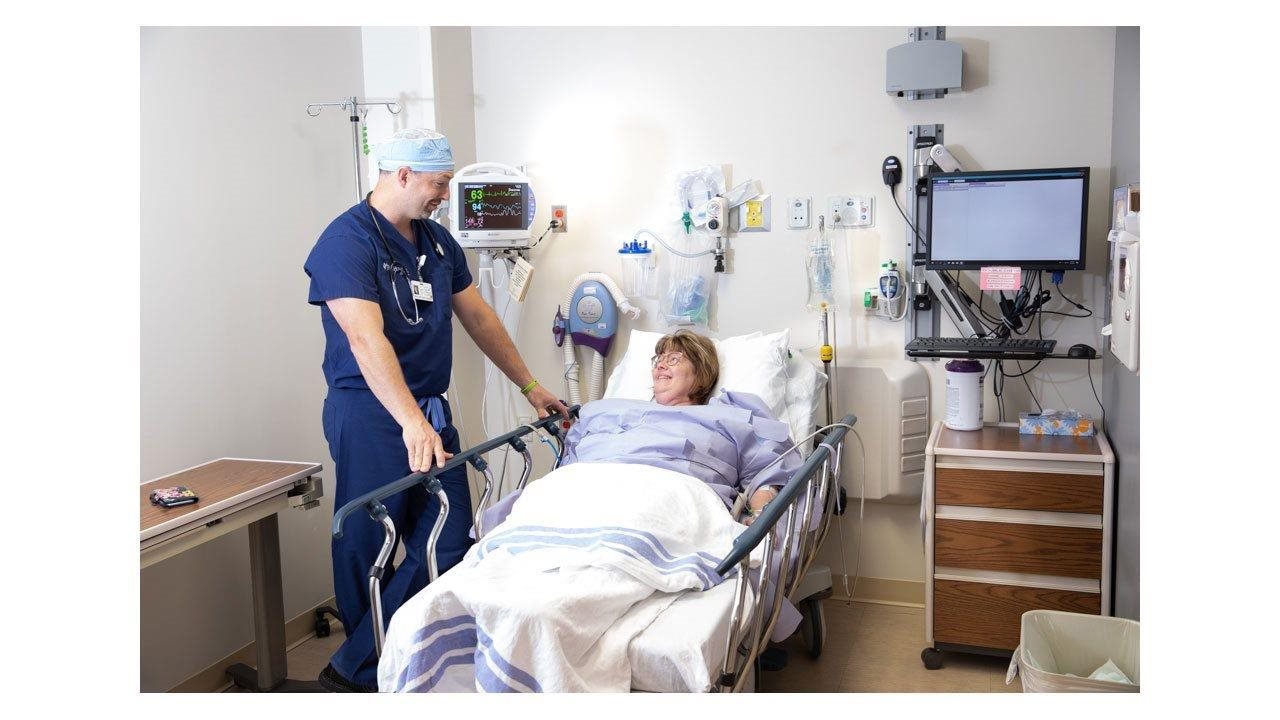From pre-op to wake-up: Trust in anesthesia care starts here
Posted: July 17, 2025 | Word Count: 964

Each year, millions of people undergo surgical and diagnostic procedures requiring anesthesia care. No matter what kind of surgery you're facing, the process can produce anxiety. Receiving anesthesia is one aspect of surgical procedures that can cause concern.
Certified Registered Nurse Anesthetists (CRNAs), also known as nurse anesthesiologists or nurse anesthetists, partner with patients to safely provide anesthesia and pain management that addresses all aspects of care before, during and after procedures. CRNAs are trained to provide safe, effective care that supports patients along each step of the procedure and promotes optimal recovery.
As experts in delivering safe anesthesia care, the American Association of Nurse Anesthesiology (AANA) shares tips to help prepare you or your loved one for surgery.
Consider yourself part of the team
You have an important role in your own healthcare. It's important to be involved in your care decisions, so make sure you understand the process and ask your surgeon or anesthesia provider any questions you may have.
What to expect before anesthesia
Some preparation is required, even weeks ahead of your procedure.
- Pre-admission testing may be ordered by your surgeon/anesthesia team. Testing and the questions your team asks are important to reduce your risk of allergic reactions, drug interactions or physical complications, so make sure your responses to questions are accurate and truthful.
- Schedule a ride from a responsible individual. According to a recent statement issued by AANA, Patients should not be permitted to drive themselves home after the procedure or surgery, particularly if they received sedation or anesthesia. It's important to receive a ride home from someone you know and trust. Rideshare services are only responsible for transportation. Rideshare drivers are not responsible for caring for the patient during transport or upon arrival at their destination. Healthcare providers recommend that someone stay with you up to 24 hours post-surgery.
The day before the procedure
You'll be directed to follow specific instructions, so ask questions if anything is unclear. Following all instructions helps support your safety and prevents delay or cancellation of surgery. Common instructions include:
- Fasting: You're typically asked not to eat or drink anything after midnight. Be sure to clarify with the care team of what's allowed and when.
- Medications: Follow your surgeon's directions for taking or stopping medicines.
- Alcohol, smoking, vaping and drug use is prohibited 24 hours before procedures. Cannabis recommendations vary and may be 72 hours to 10 days. Check with your provider or care team.
The day of surgery
Before the procedure, your anesthesia provider will review your health history, allergies, medicines (including over-the-counter medications or supplements), previous procedures and more. This helps your anesthesia provider develop a safe, effective anesthesia care plan, so it's vital to be accurate and truthful.
"One of the most important things patients can do before surgery is be honest about any medications they take — including over-the-counter drugs, supplements, and current or past drug use," said AANA President Janet Setnor, MSN, CRNA, Col. (Ret), USAFR, NC. "This information helps nurse anesthesiologists tailor care safely and avoid complications. We're here to protect you, not to judge you."
Types of anesthesia
Different forms of anesthesia can be used, depending on the procedure.
- Local anesthesia via injection numbs an area of the body, typically for minor procedures. You may stay awake or receive additional medicine to help you relax.
- Light/moderate sedation through an IV makes you feel relaxed and reduces anxiety. You may feel sleepy but will still be responsive, although you might not remember much.
- Deep sedation administered through an IV causes a decreased state of consciousness in which you may be less responsive and not easily aroused.
- General anesthesia may be administered through an IV, inhaled gas, or both. You will lose consciousness and won't feel pain during surgery. You may also forget the surgery and the time immediately afterward.
- Regional anesthesia is given through injection near nerves or your spinal cord to numb an area of the body. You may stay awake during the procedure or receive sedation or general anesthesia.
After anesthesia
When your procedure is complete, you may become aware of your surroundings in the operating/procedure room or the post-anesthesia care unit (PACU), or recovery room. Nurses will monitor you and provide medications as needed to improve comfort and treat any possible side effects. Be sure to tell the nurse your pain level so they can provide appropriate medication.
Returning home
When your healthcare team determines you can safely be discharged, they will review instructions with you (and your caretaker, if available) and provide written information. Make sure you understand your instructions and ask any questions.
CRNAs also recommend that you:
- Return to activity: Optimize recovery by returning to daily activities the day of/day after surgery. Consult your physician for specific instructions on activities you can and cannot do during recovery.
- Begin eating: Slowly return to a regular diet unless your provider has put you on a special diet, with small meals at first. To prevent constipation, drink lots of fluids and include foods with fiber like fruits, vegetables and whole grains.
- Delay important decisions/signing legal documents: Anesthesia and pain medications may impair decision-making abilities for 1-2 days.
- Don't drive/operate machinery: Reactions and judgment may be impaired up to 24 hours. Ask your provider when you're allowed to drive.
- Only take medications prescribed by or discussed with your care team.
Follow all discharge instructions and contact your care team with questions or concerns.
CRNAs are anesthesia professionals who have been providing anesthesia care to patients in the U.S. for over 150 years and administer over 58 million anesthetics to patients each year. As highly educated, experienced advanced practice registered nurses, CRNAs deliver safe, high-quality anesthesia care. They're compassionate and patient-centered, always supporting the health and well-being of their patients. Learn more at AANA.com/about-us/about-crnas.
